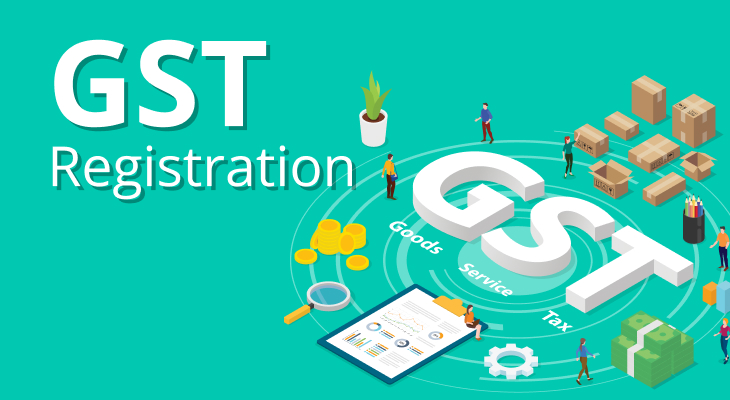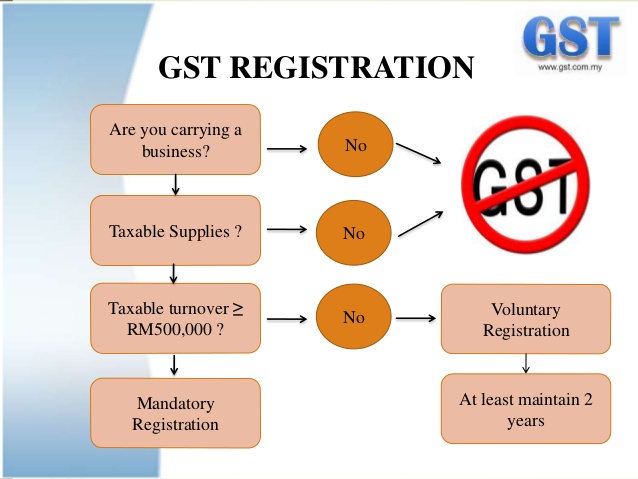Step-by-Step Process for Singapore GST Registration Explained
Step-by-Step Process for Singapore GST Registration Explained
Blog Article
The Ultimate Guide to Streamlining the GST Enrollment Process and Demands for Small Organization Owners

Comprehending GST Fundamentals
To comprehend the basics of the Product and Services Tax (GST) system, local business owners should first understand its underlying ramifications and principles. GST is a value-added tax levied on many goods and solutions for residential consumption. It aims to simplify the tax procedure by changing several indirect taxes enforced by the state and main governments. Under the GST regime, businesses are needed to gather and register tax obligation in behalf of the government, ensuring transparency and compliance.
One of the crucial concepts of GST is input tax obligation credit history, which permits organizations to declare credit scores for taxes paid on their acquisitions. Comprehending these fundamental concepts is critical for tiny organization proprietors to browse the intricacies of the GST system and make certain conformity with the regulation.
Qualification Standards for Registration
Having established a foundational understanding of GST principles, small company owners should now fulfill specific eligibility requirements to continue with the enrollment process. In India, entities took part in the supply of items or solutions with a yearly aggregate turnover exceeding Rs. 40 lakhs (Rs. 10 lakhs for special classification states) are required to register for GST. Additionally, certain companies such as those associated with inter-state supply of goods, casual taxed individuals, and those needed to pay tax under the reverse charge device need to sign up for GST irrespective of their turn over. Organizations that were signed up under the previous tax regime (BARREL, service tax obligation, etc) are also mandated to sign up under GST. Nevertheless, agricultural organizations that only supply generate out of primary manufacturing are exempt from GST enrollment. It is essential for business proprietors to thoroughly analyze their eligibility based upon these criteria to make sure compliance with the regulation and avoid any kind of fines for non-compliance.
Files Needed for GST Enrollment

Simplified Registration Refine Actions
Complying with the collection and verification of the requisite records, the enrollment process for GST can be navigated through a series of simplified actions created to promote efficient compliance for small service proprietors. Upon effective confirmation, an Application Referral Number (ARN) is released, indicating the completion of the GST registration procedure. By adhering to these streamlined actions, tiny business proprietors can effectively register for GST and ensure compliance with tax policies.
Tips for Ensuring Compliance
To preserve regulative adherence and operational integrity, diligent oversight and proactive actions are critical in ensuring compliance with GST needs for local business proprietors. Local business owners must remain updated with GST policies, submitting due dates, and any type of changes in tax obligation rates to stay clear of charges and maintain a great standing with tax authorities. One important pointer for conformity like this is to keep detailed and accurate documents of all deals, consisting of invoices, expenses, and billings associated with GST. Routinely reconciling monetary documents with GST returns can assist in recognizing and correcting any kind of discrepancies quickly. In addition, conducting regular inner audits or seeking specialist assistance can guarantee that the organization is following all GST rules appropriately. It is likewise important for small company owners to spend in GST-compliant accounting software application that can enhance the tax declaring procedure and minimize errors. Finally, participating in GST recognition workshops or training programs browse around this web-site can enhance understanding and compliance with GST policies, eventually benefiting business over time.
Conclusion
Finally, small company owners need to comprehend the basics of GST, satisfy the qualification criteria, gather necessary records, and adhere to the streamlined registration process steps to make certain compliance. By streamlining the GST registration process and needs, small service owners can prevent fines and operate their companies efficiently within the lawful structure - Singapore GST Registration. It is crucial for small company proprietors to remain educated and certified with GST laws to preserve a successful service operation
Small business owners looking for GST registration must guarantee they collect and send the essential records to complete the enrollment process effectively. The documents needed for GST enrollment generally click reference consist of evidence of service enrollment or incorporation, FRYING PAN (Irreversible Account Number) card of the service entity, identification and address evidence of the promoters/partners/directors, photographs, address proof of the place of business, financial institution account declarations or terminated cheques, and authorization forms. Going to GST recognition workshops or training programs can boost understanding and compliance with GST laws, inevitably benefiting the service in the lengthy run.
By streamlining the GST registration process and requirements, small company owners can prevent fines and operate their services efficiently within the legal framework. It is vital for small company proprietors to remain enlightened and compliant with GST laws to maintain a successful service operation.
Report this page